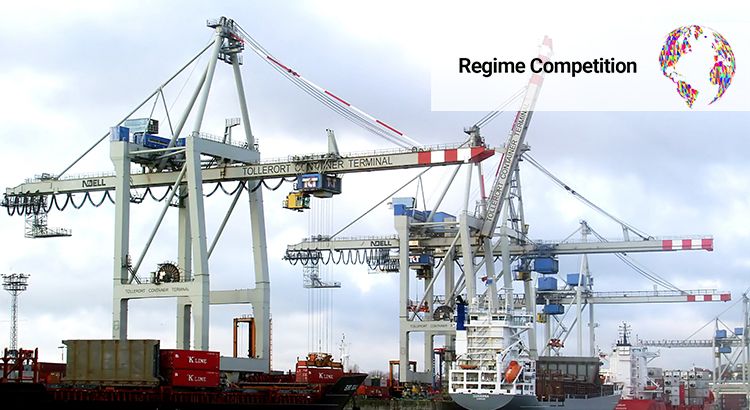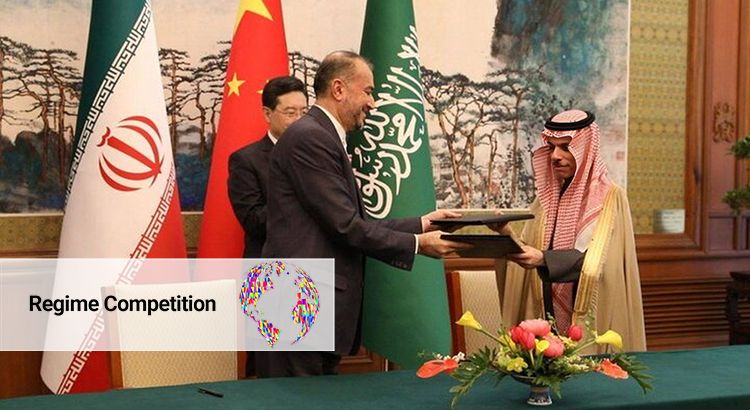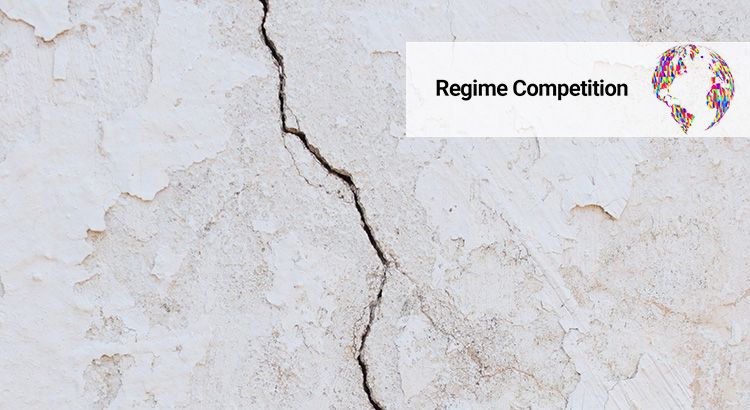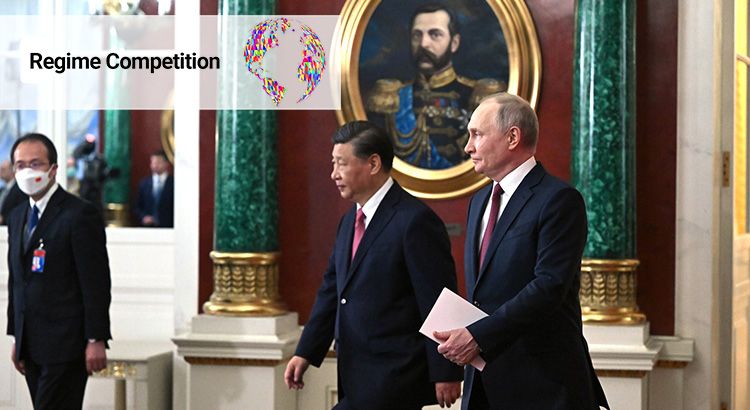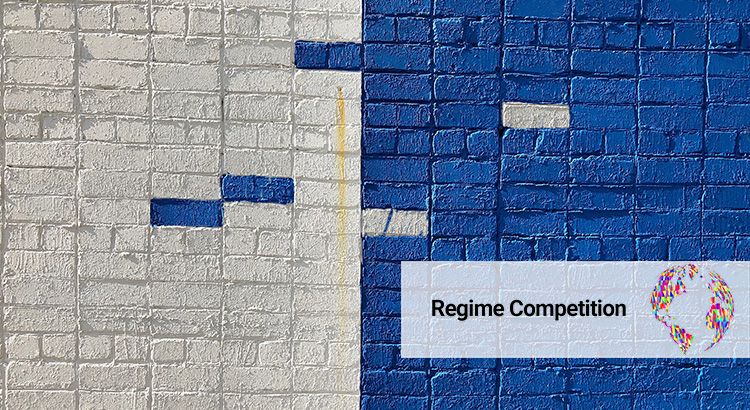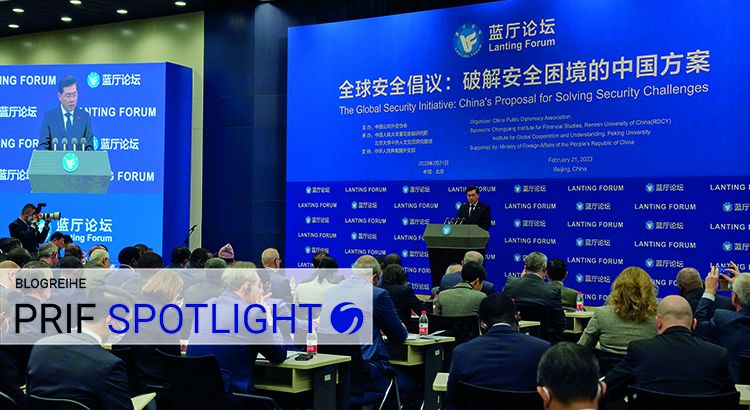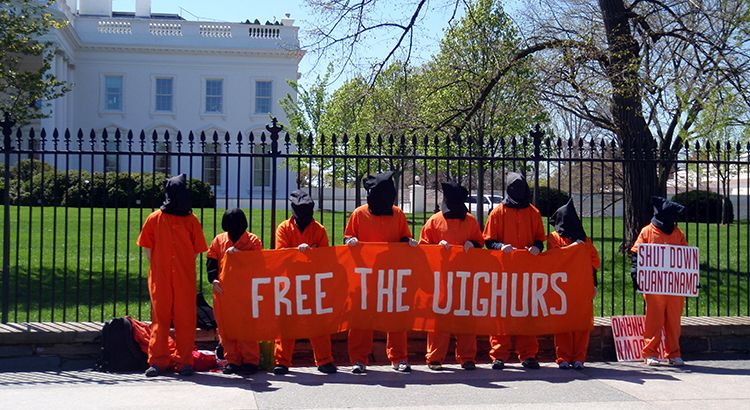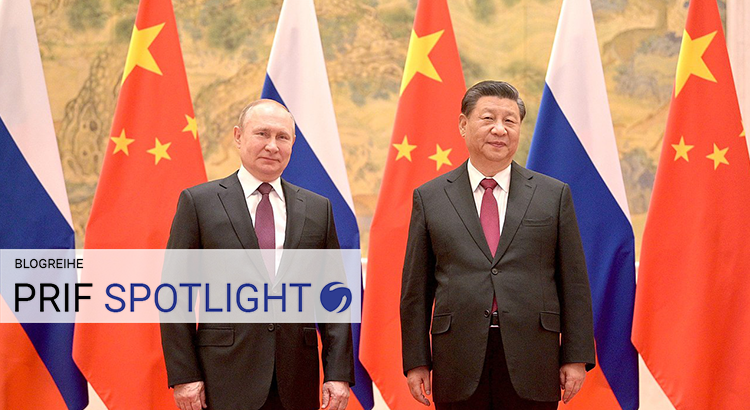Schlagwort: China
After a lengthy process of internal deliberation, the German government released its China strategy on July 13. The document signals a policy shift away from the business-focused approach taken by previous governments, and towards a “de-risking” of ties with China. It also reframes the relationship by stressing elements of competition and even rivalry, based on the perception that Chinese authoritarianism is becoming a threat to Germany and its role in the world. Instead of seeking to transform autocracies through engagement, the new approach is much more about shoring up Germany’s own system.
The Power of Not Using Power: China and the Saudi-Iranian Rapprochement
The intensifying systemic rivalry between great powers also involves contesting the most effective approaches to conflict resolution and mediation. The most recent Beijing-mediated détente between Saudi Arabia and Iran has ignited heated debates regarding its longevity and China’s rising profile in the region. While the Middle East may still be a region largely inhospitable to outsider mediation, there are three good reasons why Beijing’s latest foray into Middle East peace diplomacy may be effective. The article argues that China’s hitherto successful mediation between Saudi and Iran lies in its power of not using power—the ability to leverage its growing geoeconomic influence while refraining from the use of coercive power in regional affairs. This approach aims at providing an alternative approach to external powers’ engagement in Middle East peace affairs.
Decoupling and the “New Cold War”: Cautionary Lessons from the Past
An emerging “new Cold War” appears to pit democracies, led by the US, against autocracies, led by Russia and China. But the analogy between today’s regime competition and that of the “old” Cold War is deceptive. China and Russia today are much more closely intertwined with Western democracies than the Soviet Union ever was. These linkages will complicate the conflict considerably. There is already growing pressure to engage in “decoupling”, that is, to break these interdependencies. Research on past instances of decoupling shows that such processes often exacerbate conflict. This research offers four lessons about the general dynamics of decoupling – and little cause for optimism about today’s disengagement processes.
Xi and Putin’s Strategic Tango: Unpacking the Complexities of Russia-China Relations After the 2023 Moscow Summit
The March 2023 state visit of Chinese president Xi Jinping to Russia has attracted significant attention, and has been described as symbolic of growing cooperation between authoritarian states opposed to the current world order. However, as we argue in a recently-published article based on a review of Russian and Chinese expert statements, this partnership should best be understood as a limited, strategically motivated cooperation against shared threat perceptions. Meanwhile, there is much less agreement on normative questions, let alone a shared vision of an alternative world order.
Regime Competition in a Fragmented World: Consequences for Peace and Conflict
More than thirty years after the proclaimed “end of history” and the third wave of democratization, the world is once again marked by increased diversity in political regimes. The (re-)emergence of powerful authoritarian states like China and Russia and the trend of backsliding in seemingly consolidated democracies have created a more pluralistic and multipolar world, in which states with different political regime types increasingly view each other as competitors, seeking to prove the superiority of their own political and economic systems and to win the allegiance of third countries.
China’s new Global Security Initiative: a rising power spreads its wings
On 21st February 2023, the Chinese Foreign Ministry released its concept for a “Global Security Initiative”, a white paper outlining the country’s proposed solution to challenges across traditional and non-traditional security issues. While the content mostly amounts to a restatement of long-standing principles and pooling of existing activities under a new label, its packaging as a “global initiative” should be seen as a statement of intent, claiming a much greater role in international politics. The sketched Chinese security agenda differs significantly from that of Western powers in both its principles and practices, making this field a new arena of competition between both sides.
Chinas Belt-and-Road-Initiative ist ein Sicherheitsproblem – aber nicht so, wie oft gedacht
Als Teil der „Zeitenwende“ in der deutschen Sicherheits- und Verteidigungspolitik soll gegenwärtig und erstmalig eine nationale Sicherheitsstrategie erarbeitet werden. Sicherheit wird darin umfassender als bislang gedacht, entsprechend vielfältig ist daher auch das Bouquet der Einzelthemen, die im Rahmen der Strategiefindung behandelt werden sollen. Wenig überraschend zählt auch China bzw. dessen Aufstieg dazu; interessanter ist hier der spezifische Kontext der „Belt-and-Road“-Initiative (BRI), durch die Peking umfangreich in die Infrastruktur von Drittstaaten investiert. Dieses Engagement berührt tatsächlich auch die deutsche Sicherheit, allerdings indirekt und auch nicht nur negativ. Eine erfolgversprechende Politik sollte die BRI deshalb nicht pauschal verdammen, sondern Vor- und Nachteile nüchtern analysieren.
The Xinjiang Police Files and the Visit of the UN High Commissioner: Will This Open Up New Opportunities?
The treatment of the Uyghur population by the CCP has been an ongoing concern for the last 5 years. Over this time information has leaked from government and security sources which indicates that grave human rights violations and potentially even crimes against humanity have been committed. The UN High Commissioner has recently visited China and the Xinjiang region and in this context the newest significant trove of information was released, showing once more the human rights abuses. Yet it is unlikely that any multilateral action will be taken, outside of diplomatic efforts. As there are few avenues to address these human rights violations in international law, the more diplomatic approach that can be seen in the visit of the High Commissioner should be supported.
Nicht viel Liebe in Zeiten des Krieges: Sicherheitspolitik als neues Konfliktfeld in den europäisch-chinesischen Beziehungen
Der jüngste EU-China-Gipfel am 1. April fand unter dem Schatten des Krieges in der Ukraine statt. Beide Seiten bezogen sehr unterschiedliche Positionen. Europa hat den Krieg klar als rechtswidrige Aggression verdammt, Russland entsprechend sanktioniert und ist aktuell dabei, seine Sicherheitspolitik komplett neu aufzustellen. China hingegen ist offiziell neutral, betont aber weiterhin die enge Partnerschaft mit Russland und übernimmt teils dessen Kriegspropaganda. Damit verschiebt sich die bilaterale Agenda weiter weg von wirtschaftlichen Themen und rührt inzwischen sogar an das Feld der europäischen Sicherheitspolitik, was neben den vielen anderen Irritationen der letzten Jahre für weiteren Konfliktstoff sorgt.
A new Sino-Russian Entente? The limits of cooperation on Ukraine and beyond
As the military standoff over Ukraine continues, both sides have attempted to mobilize international support for their respective positions. While Kiev has received increasingly robust NATO backing, Russia has turned to its “strategic partner” China. A recently published joint Sino-Russian statement has fueled speculation that Beijing could weigh in on Moscow’s side and perhaps even lead to the resurgence of competition between ideological blocs in world politics. However, diverging interests on Ukraine limit such cooperation in the short term. A long-term alignment between both sides is a more serious possibility, but can still be influenced by Western policy choices.
